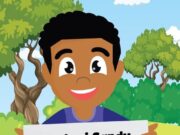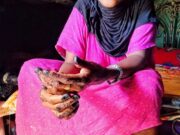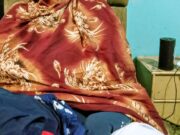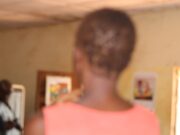A few days ago I met Belinda Adhiambo, a mother of one. Her son is three-months old. Belinda has a physical disability; she is an amputee. Belinda lost her leg at the age of three years when she was involved in a road accident. Her leg had to be amputated. You can read her story here: The pregnancy and childbirth experience of an amputee woman in Kenya.
During our conversation, Belinda mentioned something that piqued my interest.
A few years ago, as Belinda interacted with fellow women with disability in Kibera, where she grew up, something interesting dawned on her.
Belinda realized that most women with disability, who were mothers, never got married. They never seemed to have partners. Most were single mothers. She wondered why. To understand the issue better, Belinda decided to hold a community dialogue where she brought together other women with disabilities to discuss issues around their sexual reproductive health.
Among the things that Belinda found out during this dialogue was that many of the women were in relationships. Because women with disability also have feelings and desires, something that society doesn’t seem to be comfortable with. Many people assume that people with disability have no sexual feelings, have no desire for intimacy, and should not have children or start their own families.
Now, what Belinda established is that for many of these women in relationships, their male partners would come into their houses in the dead of night –at around 1am. They would then have sex with them, before sneaking out at about 3am. Two hours of passionate rendezvous. Belinda labelled these men the ‘midnight lovers’. These are men who are in relationships with women with disability, but can never be seen with them during the day. They are kept as a little secret.
At least someone desires me
Belinda noted that the women would entertain the ‘midnight lovers’ because they felt that they did not have a choice.
“Like who will love me with this condition of mine? Like shouldn’t I just be grateful that at least someone desires me, even if it’s in the cover of darkness? Isn’t that better than nothing?”
From the dialogue, Belinda established that most men are afraid to come out openly with lovers who are disabled. It’s embarrassing. It doesn’t fit right with society. What will their family members say? Their friends? It’s not something they are prepared to deal with. So they would rather keep it discreet and meet their lovers clandestinely. They prefer to keep them as their little secret; the one that nobody ever has to know about.
Now, unfortunately, by the time the women are realizing what’s going on, they have two, three, four children. Sometimes, the children have different fathers.
Their midnight lovers of course have their own girlfriends and wives whom they are proudly seen with during the day. At night, they continue coming to see them. The women with disability are left holding the short end of the stick. Used, denied and unsupported by their midnight lovers…
The good thing is that nowadays, Belinda says there are increasing empowerment programs for women with disability that educate them on their rights, including those pertaining to their sexual reproductive health. Programs that educate them on protected and safe sex, and the need for them to use contraceptives so that they can have children when and if they want them. Their exposure to these empowerment engagements are enabling them make more informed decisions about their sexual activities. However, she says a lot more still needs to be done. I will continue writing about this #WomenwithDisabilities topic, so keep following this blog and on my social media pages as well.
If you are a woman with disability, or know a woman with disability who would like to share their/your pregnancy and childbirth experience, please reach out to me on wawerumw@gmail.com
What are your thoughts about Belinda’s observations? Had you known about it? Please share in the comments section below.
 Mummy Tales by Maryanne W. Waweru is a platform dedicated to empowering its readers on different aspects of womanhood and motherhood. Read more motherhood experiences of Kenyan moms here. Connect with Mummy Tales on: FACEBOOK l YOU TUBE l INSTAGRAM l TWITTER
Mummy Tales by Maryanne W. Waweru is a platform dedicated to empowering its readers on different aspects of womanhood and motherhood. Read more motherhood experiences of Kenyan moms here. Connect with Mummy Tales on: FACEBOOK l YOU TUBE l INSTAGRAM l TWITTER
Also read: Maternity Care Experiences of Women with Disabilities in Kenya
Maternity Care Experiences of Women with Disabilities in Kenya







































